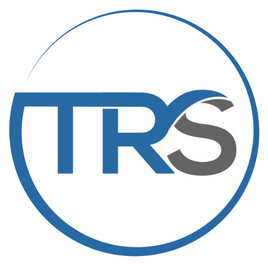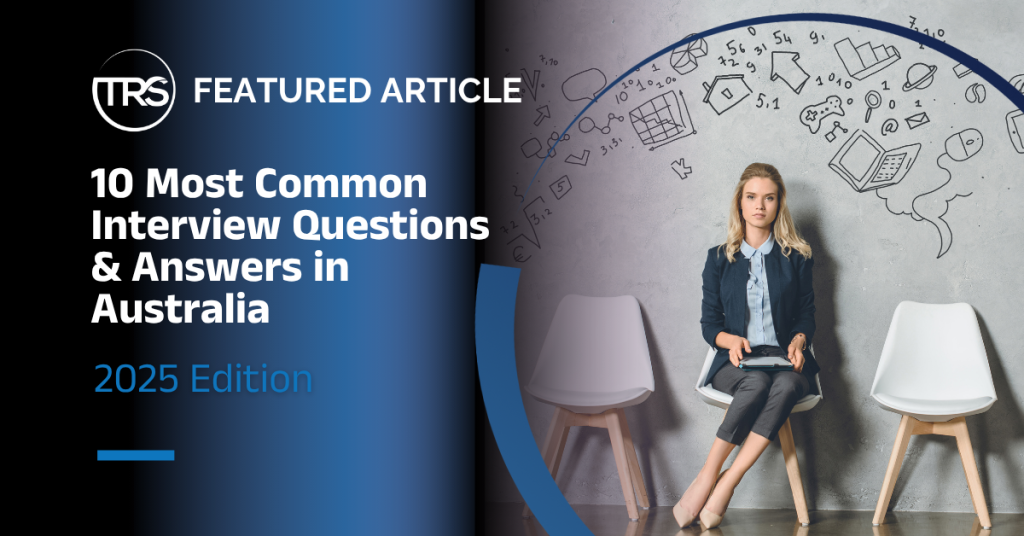10 Most Common Interview Questions & Answers in Australia (2025 Edition)
Looking for a job in Australia? Being prepared for your interview at a moment’s notice has never been more important. We’ve placed hundreds of candidates in roles within manufacturing, logistics, warehousing, defence, and transport in Victoria and Sydney, and we know how interviews are conducted and what employers are looking for. Nowadays, you’ll face…
Looking for a job in Australia? Being prepared for your interview at a moment’s notice has never been more important. We’ve placed hundreds of candidates in roles within manufacturing, logistics, warehousing, defence, and transport in Victoria and Sydney, and we know how interviews are conducted and what employers are looking for.
Nowadays, you’ll face a mix of traditional behavioural questions and questions designed to test you, your adaptability, and how you’ll fit into a tech enabled workplace. Are you ready for this?
Here are ten common interview questions, along with how to approach answering them in 2025/26.
“Tell me about yourself.”
Why it’s asked: It’s still a staple. But now, it’s just as much about your adaptability, tech-awareness and how your experience aligns with a changing workplace.
How to answer: Start by briefly summarising your background, be it trades skill, blue/white-collar role, relevant industry (e.g., mechanical fitter, heavy diesel mechanic, operations manager). Then emphasise what you’ve done recently, maybe you’ve used digital tech, and or software, embraced big workplace change, or improved and streamlined a process or procedure. Employers increasingly value someone who can work in a tech-enabled environment.
2025 tip: Finish by touching on what you bring to the advertised role.
“Why do you want this job?”
Why it’s asked: Employers want a candidate who’s genuinely interested, not just hunting for any opportunity.
How to answer: Focus on the company and role: “I’m genuinely interested in this role because I feel I can bring my specific skills (e.g., sheet metal worker, paint blaster, service technician) and I believe this company is already innovating, or heading in a direction I align with.”
2025 tip: Show awareness of how you see the company: For example: “I know you’re enhancing your asset management systems / using digital dashboards / expanding operations, and I want to be part of that.” This is a plus if you demonstrate and show awareness of technology adoption or digital transformation.
“Why should we hire you?”
Why it’s asked: You need to differentiate yourself.
How to answer: List 2 or 3 of your strengths or experiences, and relate them directly to the role description. For example: “I’ve worked as a heavy diesel mechanic for six years, I introduced a preventative maintenance schedule that reduced downtime by xxxxx%, and I’m comfortable using diagnostic software to track faults.” Then link that back: “Which means for this role you’ll get someone who is immediately productive and can help you minimise operational disruptions.”
2025 tip: Add a forward looking statement about willingness to pick up new tools or assist with digital systems. With AI, analytics, and process automation creeping into operations, showing you’re comfortable with tech matters.
“What are your strong points?”
Why it’s asked: Helps the interviewer see what you do well and how you’ll add value.
How to answer: Choose strengths relevant to the role (e.g., solution-oriented, quick learner, able to work under pressure, team player).
2025 tip: Familiarise yourself with the job ad so you can make yourself relatable to the description of the role they are looking to fill.
“What are your weak points?”
Why it’s asked: Shows self awareness and ability to learn.
How to answer: Pick a real but manageable weakness, explain what you’ve done to improve it, and how it won’t be a problem for your role. For example: “I used to struggle with delegating tasks; I realised it slowed projects, so I took a supervisor course and now I regularly assign and follow up on tasks in our team.”
2025 tip: Avoid saying something that’s central to the role (e.g., “I’m bad with hands-on work” if you’re applying as a fitter). Instead pick something closest and show your improvement journey.
“Tell us about a time when you overcame a challenge / solved a problem at work.”
Why it’s asked: Real life proof of capability.
How to answer: (use STAR): Situation /Task / Action / Result. Be clear and concise. Example: Situation: “On a shutdown weekend, we discovered a cracked weld on a critical boiler pipe.” Task: “We had to replace and test it within 48 hours to avoid further delay.” Action: “I organised the team, arranged for the replacement part, coordinated with the inspection vendors, and updated the client in real time.” Result: “We completed the repair 6 hours ahead of schedule, saving the client =$X in downtime, and they extended our contract.”
2025 tip: If you can include any tech or digital support you used (data, predictive maintenance, sensors), that’s a plus. It shows you’re “future and tech ready”.
“What do you know about our company?”
Why it’s asked: Shows preparation and genuine interest.
How to answer: Research: what they do, their values, any recent projects or investments (especially around operations, technology, growth). Then relate it back: “I saw you’ve just upgraded your warehousing system / you’re expanding into NSW logistics…” and show how you fit into that.
2025 tip: Show you’ve checked their website, LinkedIn, and recent news. Mention their culture, values, role in industry sectors (manufacturing, 3PL, defence, real estate), and highlight how you align.
“Tell me about a time when you made a mistake. How did you handle it?”
Why it’s asked: Indicates maturity, accountability.
How to answer: Choose a real mistake (not something catastrophic), describe what you did to rectify it, what you learned, and how you changed your behaviour. Example: “I misread a drawing specification, which led to rework. I admitted it early, worked overtime, they were lessons learned, and we worked it through together with the team, implemented a procedure checklist to avoid recurrence, since then we’ve had zero repeat incidents.”
2025 tip: If you can mention how you used digital tools (e.g., used an app or workflow board to track changes) that can reinforce tech savviness.
“Why are you leaving your current job?”
Why it’s asked: To gauge motivation and check for red flags.
How to answer: Stay positive and future focussed. Avoid criticising or bad mouthing past employers. Example: “I’ve learnt a lot, but I’m ready for a new challenge, bigger responsibility, or working with a company investing in digital tools and growth. I see that here.”
2025 tip: You might say: “I want to work in an environment where technology and continuous improvement are implemented, and I believe your business is moving that way.” That shows you’re aligning your career with how the industry is evolving.
“Do you have any questions for me?”
Why it’s asked: This is your chance to engage, show interest, and evaluate fit.
How to answer: Always have questions prepared. Good ones for 2025 include:
- “What are the main operational or digital challenges your team is looking to solve this year?”
- “How will this role integrate with any new automation or analytics systems you’re implementing?”
- “What does success look like in this role after six months and one year?”
2025 tip: Asking about tech, training, and growth signals you’re aware of the evolving nature of work and want to stay up to date and current.
Interview preparation has always been important, but as it’s 2025 and heading quickly into 2026, employers are increasingly using AI tools, predictive analytics, and digital platforms in hiring processes. For you as a candidate, that means being able to speak about both your core trade/industry skills and how you engage with change, digital tools, and continuous improvement.
At TRS Resourcing, we work with businesses in manufacturing, 3PL logistics, warehousing, defence and transport, real estate and property sectors, where this mix of strong practical skills and adaptability is golden. If you’re preparing for an interview in one of these fields, make sure you’re as ready for the human part of the interview as you are for the digital part.
10 Most Common Interview Questions & Answers in Australia (2025 Edition) Pro tip: Practice your answers, prepare examples, and update your LinkedIn profile (remember, recruiters look there first) to reflect not just what you’ve done, but how you’ve grown and adapted.
https://www.trsresourcing.com/article/10-most-common-interview-question-and-answers-in-australia/

